
Vocational Rehabilitation Self-Employment Guide
Chapter 2:
Self-Employment Readiness

Introduction
Self-employment is not as easy as hanging up an “open for business” sign on your business door. Running a successful business requires more skills than just making your product or providing your service. You also need to know how to do things like advertise your business, keep track of money, and manage day-to-day responsibilities.
This chapter helps you figure out if self-employment is a good fit. First, it explains some myths, or misunderstandings, about self-employment. Then, it asks you to think seriously about why you want to run a business and your skills to do so.
Myths and Realities
Have you heard someone say they should be self-employed because they don’t like working with other people? The idea that being self-employed means you don’t have to interact with other people is just one of many common myths about self-employment.
To get a better picture of what self-employment involves, read the “Myths and Realities” sections below.
Then, check your understanding in the “Section Review.”
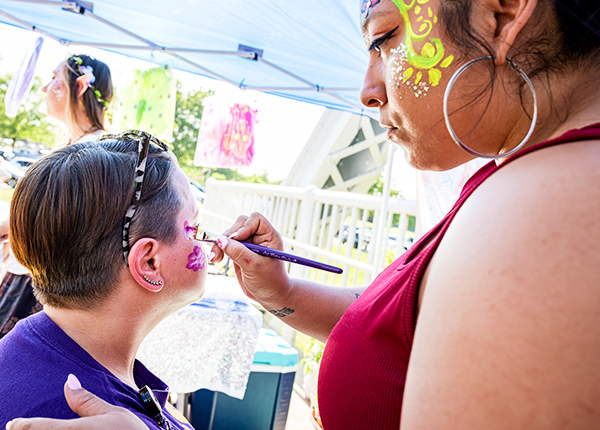
Exploring Myths and Realities
A Hobby
Myth: It will be easy to turn my hobby or craft into my business.
Reality: Running a business is much more than doing a hobby or craft. You might enjoy providing a service or product for friends and family, but as a business owner you, will need to do many other things, like advertise or manage your finances. You will need to spend more time and energy on your business than you did on your hobby.
Vocational Goal
Myth: Self-employment is my vocational goal.
Reality: Self-employment is a way to meet a vocational goal. It is not, however, a career, job, or profession. For example, you might want to be a hair stylist or furniture builder. To complete your vocational goal as a hair stylist, you could work as a stylist at an established hair salon or open your own hair salon. Similarly, if your vocational goal is to work as a furniture builder, you could work for a furniture-building company or start your own furniture-building business. In both instances, self-employment is just one way to reach the vocational goal and not the vocational goal itself.
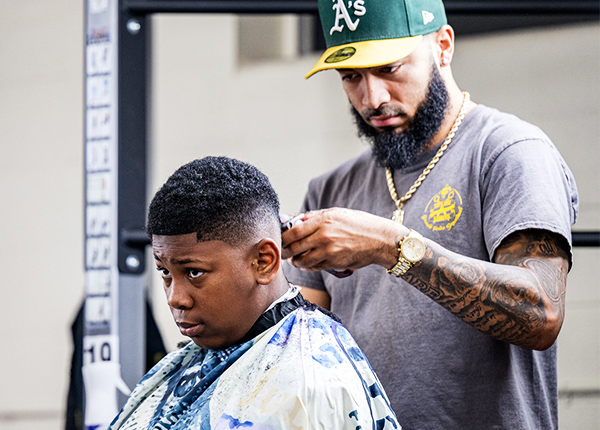

Business Start-up
Myth: It won’t take long to get my business up and running.
Reality: Depending on the size and scale of your business, the business planning stage can take anywhere from several months to over a year. Once your business is open, it can often take another year or more to build up your customers and earn a profit. Self-employment is a long-term process that requires patience and dedication.
Required Skills
Myth: I will be good at running my business because I am good at making my product or providing my service.
Reality: When you work for yourself, you are responsible for all parts of the business, not just making your product or providing your service. You also must do things like order materials, track sales, pay bills, answer phone calls and emails, try to get new customers, and clean your workspace. You may need to find other people to assist you with some of these tasks if you cannot do them.
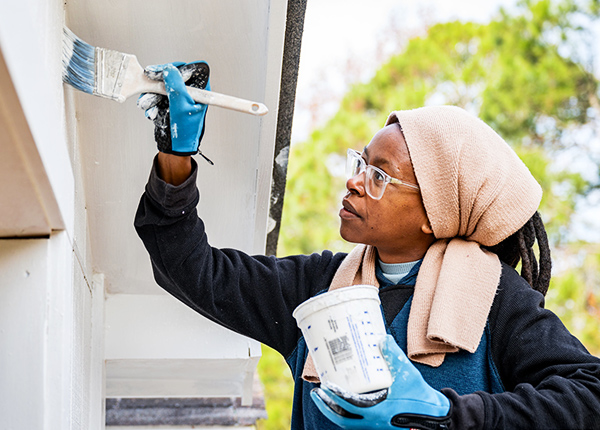

Self-Direction
Myth: I get to work for myself. I am my own boss, so I can do whatever I want.
Reality: Self-employment may provide flexibility and independence, but it also requires you to meet many other demands. Being the boss means you are responsible for everything, not just the things you enjoy.
Working with Others
Myth: Self-employment is a good fit for me because I don’t work well with others.
Reality: Business owners need to work well with others. They need to communicate with many different types of people, including customers, suppliers, and other professionals (such as accountants and lawyers) to run the business. In close-knit communities like rural towns, having positive relationships with other people is very important. It is difficult to run a business without help and cooperation from other people.

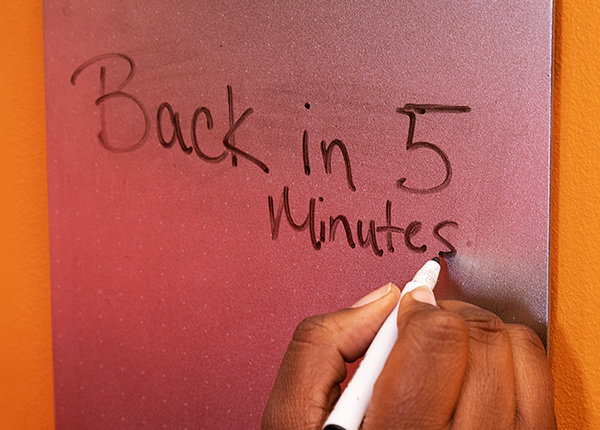
Flexibility
Myth: Self-employment offers me flexibility. I can work whenever I want and can work as little or as much as I want.
Reality: Self-employment does offer flexibility to set your own hours, but depending on the type of business, it can require working more hours than a full-time job. Also, it can be hard to take off more than a couple of days at a time if you do not have others to fill in for you.
Funding
Myth: There are plenty of ways to get business start-up funds.
Reality: Most business start-up funds come from personal savings or a business loan. Getting a loan usually requires good credit, a business proposal, and capital (or money) from you or another source. Even if vocational rehabilitation (VR) helps with some start-up costs, you will probably need additional cash from a grant, bank loan, or your own savings.
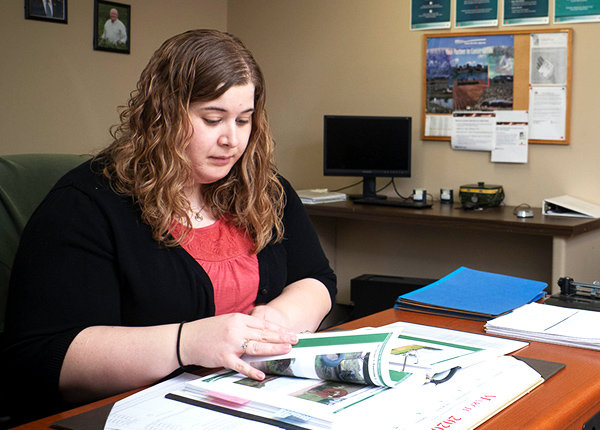
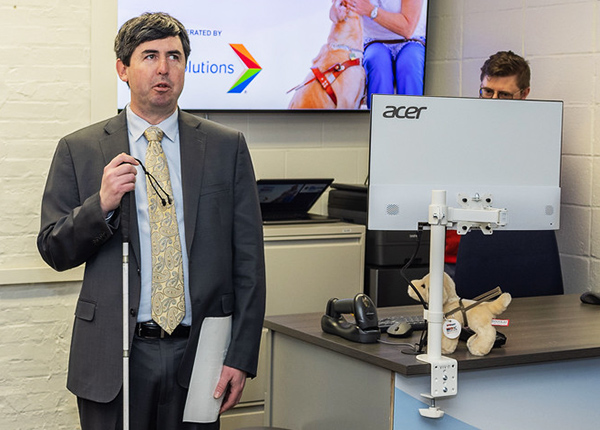
Feasibility
Myth: Self-employment is too complicated for me to succeed.
Reality: Self-employment is possible, but it takes time and effort. It can take months or years to develop the skills you need to write a business plan, open a business, and become profitable. If you want to avoid a long start-up phase, it is often better to start simple and then scale up.
Maintaining Your Business
Myth: Once my business is up and running, I won’t have to work very hard.
Reality: Self-employment requires your time and energy over the long term. Once your VR case is closed, you still need to do all the work of running your business.


Wrap-Up
After reviewing the realities of running your own business, do you think self-employment is still a good option for you right now?
While you continue to think about it, go to the next tab to begin exploring your personal values, traits, skills, and readiness.
Section Review
Write down answers to the following questions, then open the “Review Your Answers” accordion below to compare your answers.
Vocational Goal Question
Is this statement a myth or reality? Self-employment is a vocational goal.
Business Skills Question
Is this statement a myth or reality? I will be good at running a business because I am very skilled at producing my product.
Instant Money Question
Is this statement a myth or reality? You will start making money right away once your business is open.
Review Your Answers
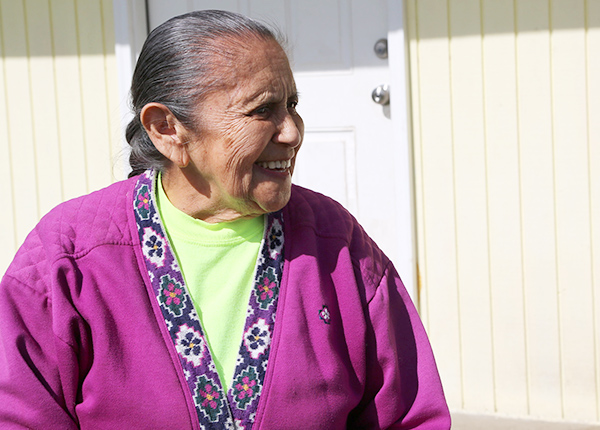
Vocational Goal Answer
Question: Is this statement a myth or reality? Self-employment is a vocational goal.
Answer: Myth
Self-employment is a way to meet a vocational goal. It is not a profession. Think of it this way: if your goal is to get to the store, there are different types of transportation you could use to do so. You could walk, drive, or ride a bike. It’s the same with a job. If your career goal is to be a baker, you can do that by working for someone else or by having your own business.
Business Skills Answer
Question: Is this statement a myth or reality? I will be good at running a business because I am very skilled at producing my product.
Answer: Myth
Although it is important to be good at producing your product or service, running a successful business also requires many other skills. Business owners need to do things like provide customer service, keep track of sales, advertise, and clean their workspace.


Instant Money Answer
Question: Is this statement a myth or reality? You will start making money right away once your business is open.
Answer: Myth
Once your business is open, it could take a year (or longer!) to earn a profit. Making money with a new business depends on how quickly you can find customers and cover your start-up and operating costs. A simple business may be able to earn a profit more quickly than a business that requires more planning and up-front costs.
Use the “Return to tabs” button below to jump to the tab navigation bar.
Then continue by selecting the next tab in the list.
Values
Before you start a business, it is important to understand your personal values. Values are the things you need and want in your life to feel balanced and satisfied. Starting and running a business can affect the time and effort you can put toward other things that are important to you. Before starting a business, it is helpful to think about how your life may change in ways that affect your values.
As you start thinking about yourself as a self-employed business owner, think about these questions:
- How will my daily routine change?
- What must I give up to make time for my business?
- What will I keep in my life to be happy and fulfilled?

Identifying Values
Personal Values
If you do not have a good understanding of your values, it can be hard to make sure that the changes you make in your life are sustainable and positive. It is important to understand what you are willing and unwilling to change when working towards your employment goals.
How to Identify Values
We have values in different life areas that make us feel fulfilled and satisfied. As you read the following descriptions, think about what you value in each one.
- Physical: People hold different values related to their physical body. Some people value moving and being physically active. Some people don’t think much about their physical body and prefer to spend time doing things that are not physically active.
- Social: Some people have a large circle of family and friends. Some people have just a few close friends or family members. Other people prefer to be alone most of the time.
- Community: Everyone is part of a community, such as a family, school, or church. Some people like to be very involved within their different communities, and others like to be more independent.
- Spiritual and Religious: Some people try to connect with a greater spirit they call God or the universe. They might be members of a religious group. Others find connections with nature or experience spirituality through social justice or causes. Some people don’t think about spiritual or religious practices.
- Learning: Some people have a desire to learn new things. They read, ask questions, take lessons, and observe. Others learn just enough to get by.
Your values in one life area may be more important to you than values in another life area. What are your most important values in one or two areas of your life (Physical, Social, Community, Spiritual and Religious, Learning)? How will starting a business impact the values in these areas? For example, if you value being active outdoors, but your new business will require you to sit inside for long periods, will this work for you over time?
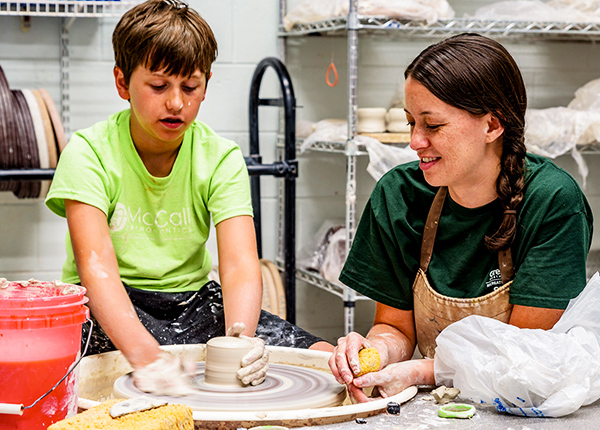

Values Reflect You
We are a mixture of many values, but we often pursue some values over others. For instance, you might like to learn new things in your spare time but choose to spend time with your community when your time is limited. In this case, your value for community overrides your value for learning. The importance you place on different values helps shape your decisions.
Sometimes, you can satisfy more than one of your values with the activities you choose. For example, volunteering at church to clean the grounds may help you meet values in spiritual, community, and physical life areas. Or taking photographs of wild animals for your business may help you meet values in physical and spiritual life areas.
Values Worksheet
Download and save the Values Worksheet to help you identify the things you value. Once you have listed your values, think about which values are the most important to you and describe how they support or compete with your proposed business.
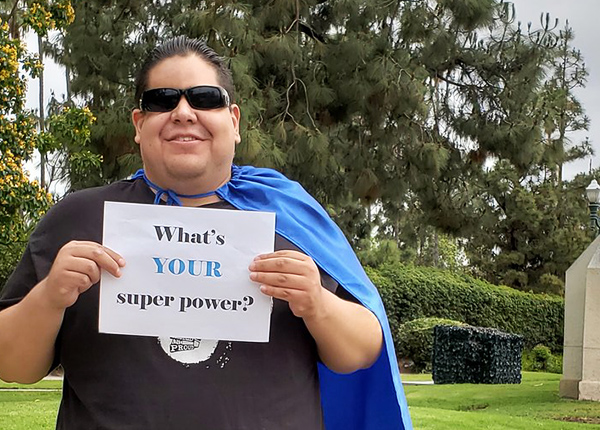

Hat and Feet Values
As you think about your different values, consider whether they are “hat” or “feet” values.
- Hat values are values you take on and off, depending on the situation. For example, someone might value eating nutritious food, but if they are in a hurry, they might stop at a fast-food restaurant.
- Feet values are values you support in almost all situations. For example, someone might value spending time with their family. They have a family picnic planned but a friend offered them a free ticket to a concert they have been hoping to see. They chose to go to the family picnic instead of the concert.
Labeling values as hat or feet values is a strategy to see which values are most important to you. Since hat values are ones we sometimes take off depending on the situation, we can think of feet values as the values that are most important to us.
What Do You Value?
To be fulfilled in work and life, you must know your higher values and live a life that meets them. Do you know enough about yourself and what you value? You may need to spend some time thinking about your life and values before committing to a business. It’s important to know what values will drive you as you begin this process.

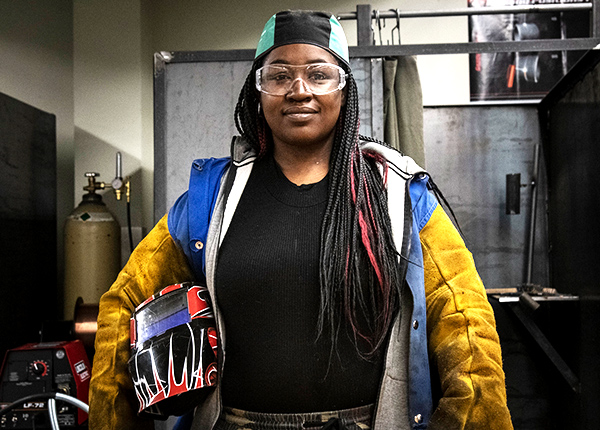
Does Self-Employment Fit?
As you start thinking about your business, how does it fit with your values?
- Will spending more time and energy on starting your business support any of your values?
- Will starting a business make it difficult to meet some of your important life values?
- Does starting and running a business seem like a good fit for you right now?
Use the “Return to tabs” button below to jump to the tab navigation bar.
Then continue by selecting the next tab in the list.
Business Owner Traits
Many business owners share similar traits and skills that make them good at running a business. These include passion, dedication, problem-solving, decision-making, planning, and people skills. This section helps you explore your own traits and skills to help you figure out if self-employment is a good fit.

Self-Employment Potential
Traits Self-Reflection Worksheet
There are many self-assessments to help you think about readiness for self-employment. We have included one to help you think about your traits and skills. Download the Traits Self-Reflection Worksheet to get started.
The Traits Self-Reflection Worksheet asks you to think about your different traits. For each of the following traits, describe a time from your past when you showed this trait, and mark if you feel this is a strong trait for you.
- Planning
- Follow-through
- Problem-solving
- Leadership
- Passion
- Meeting multiple demands
- People skills
Reflecting on Your Answers
Successful business owners are varied. Self-assessments are just one way to learn if you are ready to start a business. When you finish the worksheet, review it with your VR counselor.
- Could you think of experiences from your past where you showed each trait or skill?
- Were there some traits and skills where you might need support or more experience?
- Are these traits and skills important in your life?
Self-assessments cannot predict if your business will be successful. They are just one way to assess if self-employment is a good fit.
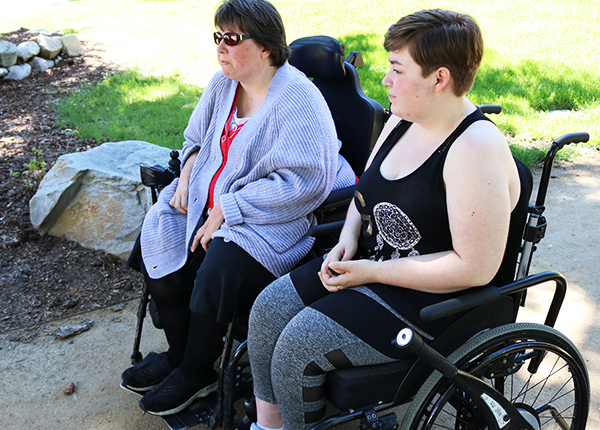
Use the “Return to tabs” button below to jump to the tab navigation bar.
Then continue by selecting the next tab in the list.
Readiness Self-Assessment
This section covers resources, skills, and accommodations you may need to become self-employed. Some of the information will be built upon in later chapters. Download and save the Readiness Self-Assessment Worksheet. Fill out the worksheet as you go through the following questions. When you are done, review your answers with your VR counselor.
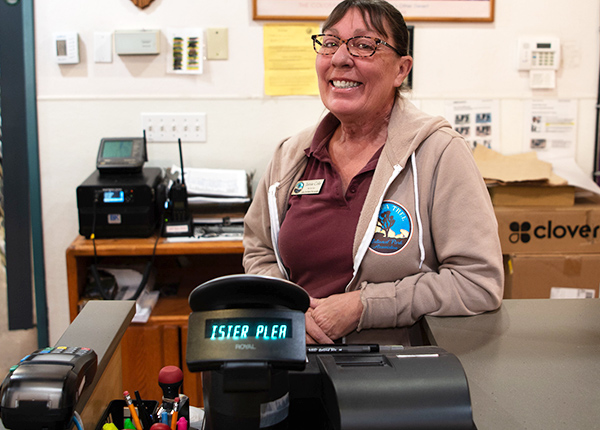
Readiness Questions
Why Self-Employment?
Why do you think self-employment is a better choice than getting a job with an existing business?
- Can you explain why self-employment is the best option?
- Do your reasons make sense in terms of the realities (compared to myths) of self-employment?
- Do your reasons make sense in terms of your life values?
Start-up Funding
How will you pay your bills until your new business earns a profit?
- Do you have enough savings to cover your personal expenses?
- Would getting a paid job help you build savings and skills for self-employment in the future?
- Would financial counseling help you get your finances in order before applying for a business loan?
- What other resources do you have that could help get your business up and running?


Business Skills
What business skills do you have for running your business?
- Do you have experience using a computer?
- Do you have skills for managing day-to-day business operations (like bookkeeping, ordering, or keeping track of inventory)?
- Can you do the accounting and bookkeeping for your business? If not, who might fulfill these responsibilities?
- Do you know how to advertise to customers?
- Do you have friends or family willing to volunteer their time to help you get started?
Needed Accommodations
What accommodations will you need to open and run your business?
- If you have challenges with verbal communication, have you thought about other ways to communicate with customers, such as email?
- If you have challenges with math or managing money, do you have a family member or friend who could help you with bookkeeping?
- How will you run your business if a disability-related issue comes up, such as a pain flare-up?
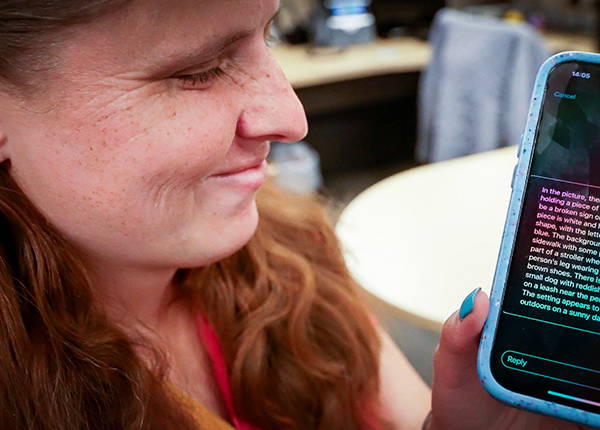

Other Challenges
Are there other challenges that might affect your ability to open and run a business? These challenges could include:
- Environment issues (allergies, chemical, or sound sensitivities)
- Family commitments
- Debt or poor credit
- Criminal record
- Community responsibilities
- Substance abuse issues
- Other
If you experience challenges, how will they affect your ability to start your proposed business?
For example:
- If you have poor credit, you may not be able to start a business with large start-up costs.
- If you have a criminal record, you may not be able to start certain types of businesses, such as a daycare.
- If you have family commitments, you may not have the time and energy required for completing
By thinking about possible challenges and solutions ahead of time, your proposed business is more likely to be successful.
Use the “Return to tabs” button below to jump to the tab navigation bar.
Then continue by selecting the next tab in the list.
Chapter Review
Before exploring a business idea, you need to consider if self-employment is a good fit.
This chapter covered:
- Some common myths and realities of self-employment
- How your values fit with self-employment
- Traits of successful business owners
- Self-employment readiness
As you went through this chapter, you may have decided self-employment was not a good fit for you right now. That is okay. Self-employment is not a good option for many people.
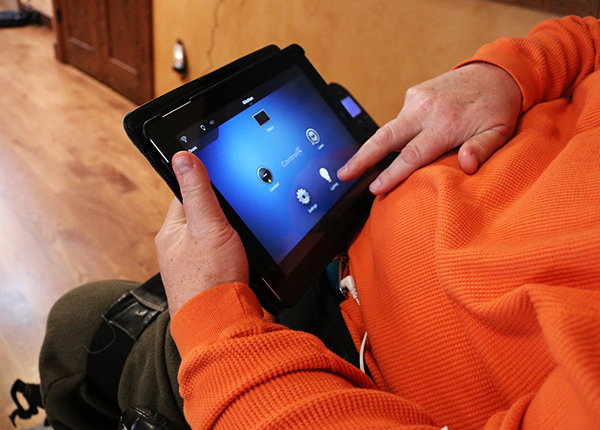
Prepare
- Write down why you think self-employment may be a good fit for you.
- Write down why you think self-employment may not be a good fit for you.
- Write down the skills you need to work on to be successful.
Discuss these with your VR counselor.
VR Counselor Tips
Traits
After thinking about the consumer’s values, traits, skills, and readiness, the VR counselor needs to determine if self-employment is a good option. As the VR counselor works with a consumer who wants to become self-employed, the counselor should think about the consumer’s traits. During meetings, does the consumer show traits (like passion, confidence, and follow-through) that successful business owners often have?
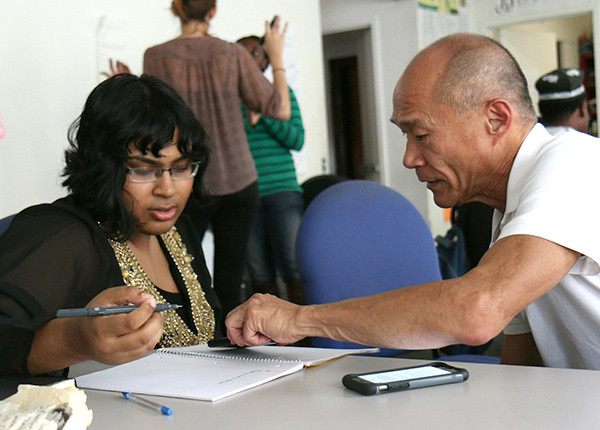
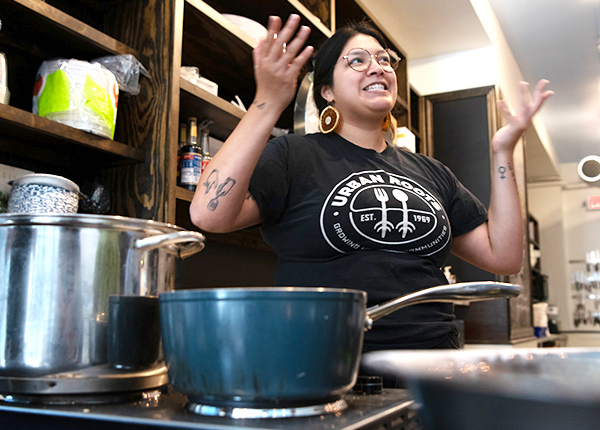
Fit
Does self-employment seem like a good fit?
- Do the consumer’s answers on the Readiness Self-Assessment Worksheet highlight the potential for moving forward? Do they show things like values fit, financial readiness, skills for running a business, and realistic solutions for managing their disability?
- Does the consumer lack any skills or resources needed to move forward?
- Can gaps in knowledge or readiness be addressed with training, other resources, or other supports?
- Would different placement options (such as wage employment) be a better match with the consumer’s abilities or interests?
Justification
It is important for the VR counselor to carefully document why they think self-employment is or is not a good option so others who review the consumer’s file understand how the counselor arrived at this decision.

Use the “Return to tabs” button below to jump to the tab navigation bar.
Then continue by selecting the next tab in the list.

Check Your Understanding:
Assessing Readiness
Read each of the three scenarios and think about why self-employment is a good or poor fit for Sarah, Tim, and Roberto. Each scenario includes a review about that person’s self-employment fit.
Write down your answers as you go through the scenarios and then check your answers.
Scenario 1: Sarah
Sarah feels like a home-based business would be a good fit for her sewing and alteration skills.
- Sarah lives in a rural community. The town has few job opportunities.
- Sarah currently pays her bills using her SSDI monthly payment.
- She does not have much savings, but she can borrow money from her family to cover some living costs if needed.
- Sarah pays her bills online and has good computer skills. She does not have any bookkeeping experience but would like training in this area.
- Sarah’s disability makes it hard for her to work long days. She needs to rest during the day to manage her pain.
- She has been sewing for family and friends for years.
- Sarah believes working from home will help her have the flexibility to rest when she needs to and meet family obligations when they come up.

Based on the information provided, do you think Sarah has justified why being self-employed is a good fit for her at this time? Think about Sarah’s reasons for becoming self-employed, her resources and skills, and how self-employment fits with her disability.
- First, write down the reasons why self-employment would be a good fit for Sarah.
- Next, write down the challenges that Sarah will need to address to be successful at self-employment.
- Now, imagine you are Sarah’s VR counselor. Would you support her in moving forward with self-employment?
Open the “Sarah’s Self-Employment Fit” accordion below to compare your answers.
Sarah’s Self-Employment Fit
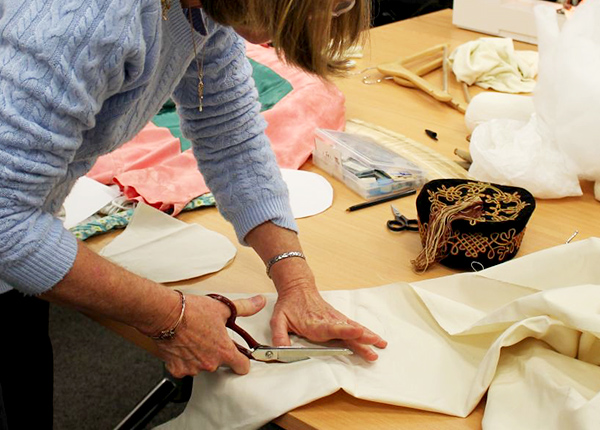
Sarah’s Reasons for Self-Employment
- Sarah provided some good reasons for becoming self-employed, including limited job opportunities in her community and how self-employment could help her address her disability by creating opportunities to rest as needed.
- Sarah has the sewing skills needed to make her product. She also has good computer skills and is interested in learning about bookkeeping to help her manage the business.
- Although Sarah has limited savings, she indicated her family would help cover living costs if needed.
Sarah’s Challenges
- Sarah cannot work long days because of her disability, so she may not be able to sew enough to make a profit.
- Sarah needs to learn how self-employment income will affect her SSDI payments.
- Sarah needs to learn bookkeeping skills.


Sarah’s Fit
Self-employment seems like a possible fit for Sarah. More information is needed about the feasibility of her business, but it seems like she has shared enough reasons why self-employment is a good fit to move on to this next step in business planning.

Scenario 2: Tim
Tim has an erratic work history but is a skilled car mechanic.
- Most of his past jobs lasted a short time. He usually quit due to arguments with his bosses or other employees when they told him what to do.
- Tim feels like self-employment would be a good option because he can work for himself, set his own hours, and call the shots.
- He is not trained in business accounting but has strong math skills and could take on most of the business management tasks.
- He has some savings, enough to last about one year.
- Tim has a mental disability that causes him to have large mood swings. He is on a new medication that is helping, and he is good about taking his medication every day.
- Tim has a criminal record for partner violence. He currently lives alone.
Based on the information provided, decide if you think Tim has justified why being self-employed is a good fit for him at this time. Think about Tim’s reasons for becoming self-employed, his resources and skills, and how self-employment fits with his disability.
- First, write down the reasons why self-employment would be a good fit for Tim.
- Next, write down the challenges that Tim will need to address to be successful at self-employment.
- Now, pretend you are Tim’s VR counselor. Would you support him in moving forward with self-employment?
Open the “Tim’s Self-Employment Fit” accordion below to compare your answers.
Tim’s Self-Employment Fit

Tim’s Reasons for Self-Employment
- Tim has financial resources to cover living expenses during business start-up.
- Tim is a skilled mechanic and could manage the business accounting if he had training.
- Tim can probably manage bookkeeping himself without much training.
Tim’s Challenges
- Tim provided myths about what self-employment offers, such as not working for others. He does not have a personality that lends itself to customer service, and he does not explain how he will overcome his past problems with work and personal relationships.
- Tim will probably need to work on his communication skills so he can interact with customers.


Tim’s Fit
If Tim continues on a self-employment path, he will need to figure out how to manage his mood swings and how to get along with suppliers and customers. This is something he and his counselor should explore before moving to the next phase of business planning.
Scenario 3: Roberto
Roberto is passionate about photography and would like to start his own photography business.
- Roberto has taken pictures of farms and barns and likes nature photography, especially birds.
- He has sold some of his photographs at craft fairs at his sister’s booth, but has not run his own booth.
- Roberto owns a good camera and has a computer and software for editing photographs.
- Roberto does not have business management experience and is not good at math.
- He would probably need help with day-to-day accounting activities and with setting up a website to sell his pictures online.
- Roberto is deaf, so an online business would make it easier for him to interact with customers.
- Roberto has enough savings to cover his personal expenses for six months, but is unsure of other sources of funds.

Based on the information provided, decide if you think Roberto has justified why being self-employed is a good fit for him at this time. Think about Roberto’s reasons for becoming self-employed, his resources and skills, and how self-employment fits with his disability.
- First, write down the reasons why self-employment would be a good fit for Roberto.
- Next, write down the challenges that Roberto will need to address to be successful at self-employment.
- Now, pretend you are Roberto’s VR counselor. Would you support him in moving forward with self-employment?
Open the “Roberto’s Self-Employment Fit” accordion below to compare your answers.
Roberto’s Self-Employment Fit

Roberto’s Reasons for Self-Employment
- Roberto has a passion for photography and has some experience selling photographs at his sister’s booth.
- Roberto’s business has low start-up costs because he already owns most of his equipment.
- An online business would make it easier for Roberto to communicate with customers because it would limit the need for face-to-face interactions when they would need to communicate in writing or using a sign language interpreter.
Roberto’s Challenges
- Roberto only has the financial resources to cover six months of personal expenses. This is usually not enough to cover the business start-up phase.
- Roberto does not have business management skills. He would need to figure out how these parts of the business will get done.


Roberto’s Fit
Roberto has experience producing and selling his product. He also has low start-up costs, which makes the business start-up more feasible. Roberto’s business idea also fits with his passion for photography and nature. However, Roberto would need help growing his hobby into a business. He would need to learn how to do business tasks like managing the business, tracking and filling orders, scheduling events, and advertising to customers. He may need to figure out ongoing support for accounting tasks and strategies for communicating with customers and suppliers.
Use the “Return to tabs” button below to jump to the tab navigation bar.
Then continue by selecting the next tab in the list.
